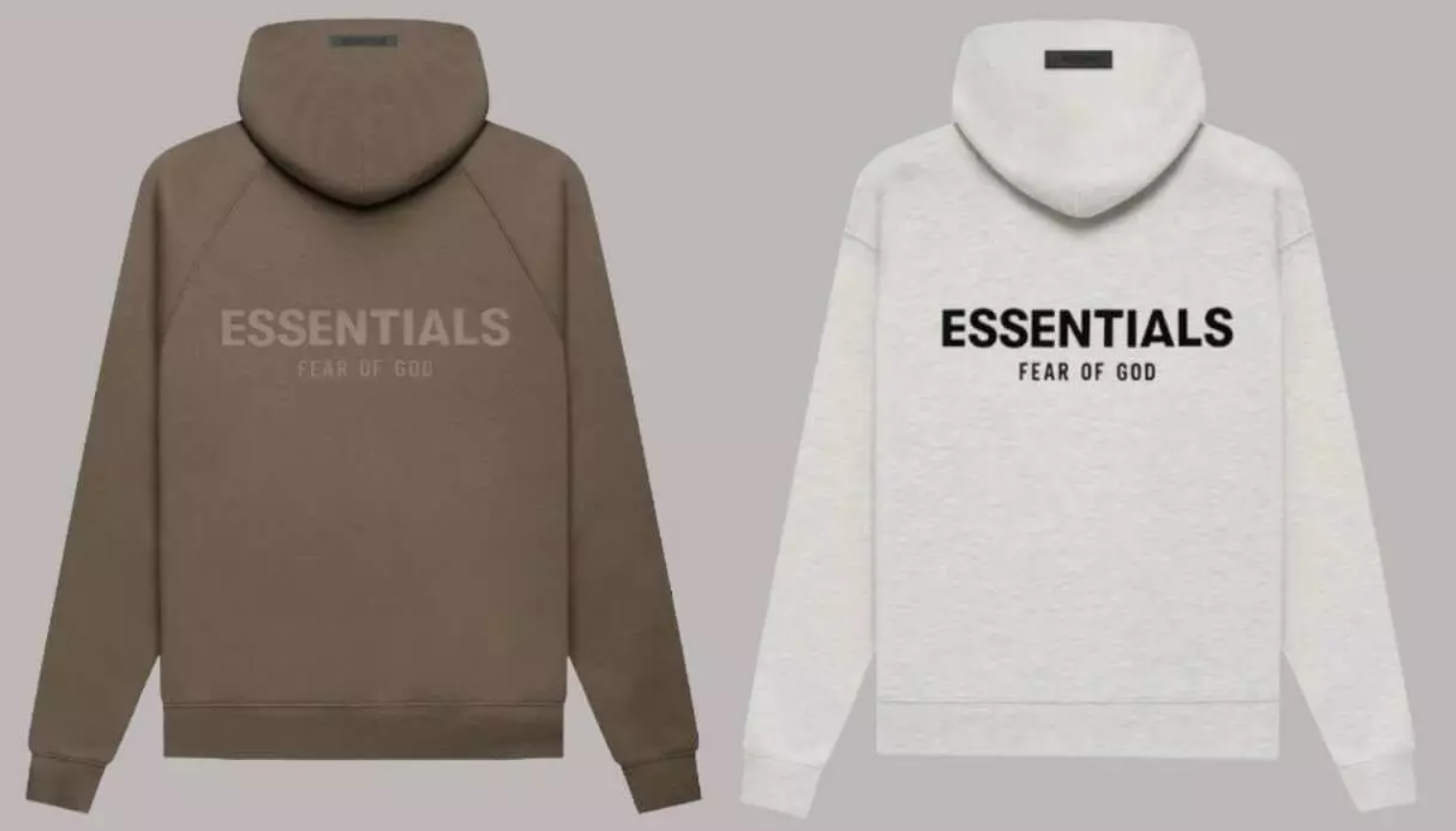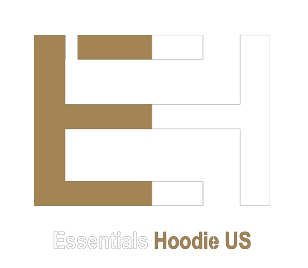Blog
How to Know If an Essentials Hoodie Is Fake: The Ultimate Guide

1. Why Essentials Hoodies Are Heavily Counterfeited
Essentials by Fear of God offers luxury streetwear at more accessible prices compared to Jerry Lorenzo’s main Fear of God line. The combination of:
-
High demand
-
Limited availability
-
Simple branding
makes it a prime target for counterfeiters.
Scammers replicate Essentials hoodies using cheap fabrics and poor printing, then list them online as “authentic” — often at slightly discounted prices to lure unsuspecting buyers.
2. Where Fakes Are Commonly Sold
Be cautious when shopping from:
-
eBay
-
AliExpress
-
DHGate
-
Grailed (unverified sellers)
-
Facebook Marketplace
-
Instagram shops without brand authorization
-
Random Shopify stores without real reviews
Fakes are often labeled as “Fear of God Essentials Hoodie,” and while the product photos may seem legit, the actual item received could be very different.
3. 10 Ways to Spot a Fake Essentials Hoodie
1. Check the Label Tags
-
Real Essentials hoodies have clean, centered label tags with:
-
“ESSENTIALS” in bold, all caps.
-
A smaller tag underneath saying “Fear of God” or “Made in Vietnam” (in newer drops).
-
Tags sewn flat and evenly with no fraying.
-
-
Fake hoodies often feature:
-
Off-center, misaligned fonts.
-
Misspelled or missing text.
-
Cheap-looking tags or tags glued instead of stitched.
-
Tip: Some fakes even get the brand name wrong — like “Essentals” or “Essentiels.”
2. Examine the Material Quality
Authentic Essentials hoodies are made from high-quality cotton/polyester blends with a soft brushed fleece interior. They feel heavy and structured — not thin or floppy.
Counterfeit hoodies:
-
Use lightweight, scratchy fabric.
-
Have inconsistent stitching.
-
May feel flimsy and poorly constructed.
3. Look at the Logo Print
Genuine Essentials hoodies use:
-
3D rubberized/silicone logos or puff print logos.
-
Clean and durable application — no peeling or cracking.
-
Branding is perfectly aligned and sized.
Fakes often have:
-
Flat or screen-printed logos that look cheap.
-
Wrong font or spacing in the “ESSENTIALS” text.
-
Logos that crack easily after one wash.
4. Inspect the Neck Label and Care Tag
An original hoodie includes:
-
A clear neck label with brand and size.
-
Care tags inside the left seam with detailed washing instructions.
Fake hoodies may:
-
Skip the care tag completely.
-
Use generic or low-res printed labels.
5. Check the Reflective Patch (If Applicable)
Newer releases include a reflective rubberized patch on the hood or back. The real patch:
-
Has a high-quality rubber feel.
-
Is attached cleanly with perfect lines.
-
Glows under flash photography.
Fake versions:
-
Have cheap plastic-looking patches.
-
Are crooked or peeling.
-
Don’t reflect light properly.
6. Review the Fit and Cut
Essentials hoodies are oversized by design, with:
-
Dropped shoulders
-
Boxy fit
-
Wide sleeves
If the hoodie is slim fit or short, it’s most likely a fake. Always compare with official size charts.
7. Examine the Stitching
Genuine pieces have:
-
Clean, double-stitched seams.
-
Even thread work and no loose threads.
Fakes often:
-
Cut corners with single-stitch seams.
-
Show poor workmanship at the cuffs and waistband.
8. Smell the Fabric (If Possible)
Originals smell neutral or fresh from the factory. Fakes can have a chemical or plastic smell from low-quality dyes and synthetic materials.
9. Cross-Check the Season and Colorway
Essentials drops colorways by season. If you see a strange color like neon pink or camo print — it’s probably fake. Research previous drops on the Fear of God or PACSUN websites to compare.
10. Suspicious Pricing
If a seller offers a hoodie at $40–$50 new and claims it’s “authentic,” it’s a red flag. Genuine Essentials hoodies retail for $90 to $120 and even more on resale platforms.
4. Real vs. Fake Essentials Hoodie: Quick Comparison Table
| Feature | Real Essentials Hoodie | Fake Essentials Hoodie |
|---|---|---|
| Fabric | Thick, soft, heavyweight fleece | Thin, scratchy, lightweight |
| Logo | 3D rubber or puff print, clean lines | Flat, cracked, off-center |
| Fit | Oversized, dropped shoulder | Slim or inconsistent |
| Tags | Clean, centered, correct info | Misaligned, typos, missing info |
| Reflective Patch | Glows, high quality | Cheap material, doesn’t reflect |
| Stitching | Neat, double-stitched | Loose threads, poor finish |
| Price | $90–$120+ | Too good to be true (under $60) |
5. Trusted Retailers for Authentic Essentials
Stick to these authorized or reputable retailers:
-
Fear of God website
- essentials hoodie clothing
If buying resale, verify the seller’s reputation and ask for clear photos of the label, stitching, and logo.
6. What to Do If You Bought a Fake Hoodie
Step 1: Contact the Seller
Request a refund and explain your concerns. If they refuse, proceed to the next step.
Step 2: Report the Product
If purchased on platforms like PayPal, eBay, or Facebook, file a dispute for counterfeit goods.
Step 3: Leave Reviews
Warn others by leaving reviews and reporting fake products.
Step 4: Shop Smarter Next Time
Stick to verified retailers and use this guide as a reference.
7. Final Thoughts
In a fashion world flooded with fakes, learning how to know if an Essentials hoodie is fake is crucial. From fabric quality to logo design, there are many telltale signs that can help you distinguish the real from the counterfeit.
Always trust your instincts — if something feels off, it probably is. Invest in genuine streetwear to enjoy superior comfort, craftsmanship, and resale value.
8. FAQs
❓ What’s the price of a real Essentials hoodie?
Retail prices usually range between $90–$120, while resale prices can go higher depending on demand.
❓ Are Essentials hoodies made in Vietnam?
Yes, many authentic Essentials hoodies are now manufactured in Vietnam and labeled accordingly.
❓ Can I spot a fake Essentials hoodie online?
It’s possible if the listing shows:
-
Wrong logo
-
Misspelled tags
-
Incorrect sizing
-
Suspiciously low price
Always ask for clear, close-up photos of the tags, logo, and stitching.

